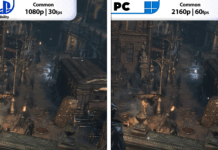posted on: Sunday May 1, 2022
By Addison Wakelin ’22
On Oct. 27, the Jane Lunin Perel Poetry and Fiction Series held a poetry reading with Caroline Forché, a renowned poet and staunch human rights advocate. Forché has had a rather extensive career that has been highlighted by several nominations for her published works. She has been a finalist for the National Book Award and the Pulitzer Prize in poetry. The event comes as a continuation of the commemoration of the voices and contributions of women at PC in the Then, Now, Next: The 50th Anniversary of Women at Providence College.
Her most recent published work, In the Lateness of the World, which documents the transitive encounters between both the present and the past, life and death, was a 2021 Pulitzer Prize finalist. Her other works, including What You Have Heard is True, a memoir about a young woman’s brave choice to engage with horror in order to help others, was nominated for the 2019 National Book Award. She has also written Against Forgetting, which had been praised by Nelson Mandela for its accounts detailing “against tyranny, against prejudice, against injustice.”
She is currently the Lannan Visiting Professor of Poetry and Professor of English at Georgetown University.
Forché is comparable to the likes of Pablo Neruda and other notable poets who have documented extensive political and social hardships through literary means. Forché’s works have struck a reverberating chord in the importance of constructing political and cultural narratives that interact in both the public and private spheres of life.
Poetry is an important facet of artistic expression that utilizes the role of storytelling and other rhetorical strategies to construct important political and cultural narratives. Forché’s works embody the complex and fundamental understandings of how literature plays an essential role in exposing the most grave atrocities documented throughout history.
Forché has been recognized as a “poet of witness,” which she has interwoven within her works to present a profound confluence between both the personal and the political within her poetry. Her works represent the ways in which war, imprisonment, torture, and slavery act as destructive and intersectional forces into the institutional frameworks of both the individual and civil society.
Forché had spent a certain amount of time in her post-graduate years in El Salvador. As detailed in What You Have Heard is True, Forché had traveled to El Salvador in 1978. She began writing 23 years after she left the country in 1980, taking 15 years to complete her work.
Forché accounts, “I found myself surrounded by these wonderful souls who had all accepted the preferential option for the poor, which is of course the understanding that if you are going to put yourself at the service of the poor, you must also accept their fate. You have to be fully with them, including in their manner of death.”
El Salvador is one of the most socially and politically tumultuous nations in Latin America and the Caribbean. Although it is a nation shaped by its vastly picturesque landscapes and cultural complexities, over the last several decades it has instead been defined by the ensuing economic and political corruption within its state capacities. Plagued by decades of civil unrest, gang violence, and political instability the country continues to face long-term social and political hardships, as documented by Forché in the late 1970s.
The creation of poetry is a definitive facet of creative expression that actively seeks to synthesize and dilute the rigid boundaries that define reality and fiction. Forché’s works represent the blurring of these lines through her works that reconstruct the importance of both the personal and the political through poetic means.
The closing remarks of the poetry reading came from Jane Lunin Perel ’15Hon. herself. The Jane Lunin Perel Poetry and Fiction series was established to “‘celebrate a life in which poetry and fiction synthesize the imagination with the divine.’” The conception of the series is reflective of Perel’s own lifelong dedication to encouraging the intellectual flourishing of the academic and creative capacities for students within the liberal arts, humanities, and other areas of learning at PC.
Following this mantra of enabling the intellectual capacities in which students can creatively express themselves within the liberal arts, Forché’s works in documenting these oppressive hardships intrinsically reflect on these values reinforced by both Perel and the Poetry and Fiction Series, in a particularly beatitudinal manner.
Your email address will not be published. Required fields are marked
*
Please enter the characters you see in this picture:
Need assistance with this form?
The Cowl
1 Cunningham Square
Providence, RI 02918
Slavin LL04
Phone: 401-865-2214
Fax: 401-865-1202
For general inquiries please email:
editor@thecowl.com
For advertising please email:
cowlads@thecowl.providence.edu
For letters to the editor please email:
opinion@thecowl.com
Copyright ©2022. Providence College.












